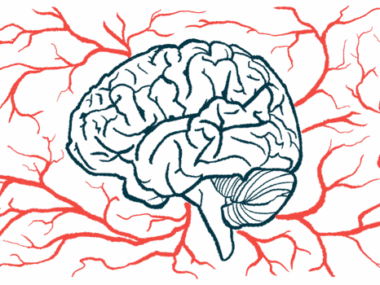Our Daughter Is 1 in 10,000
Written by |

When my 12-year-old daughter Cammy was diagnosed with Rett syndrome at 20 months old, we were told it’s a rare neurological disorder that primarily affects girls because it’s caused by a gene mutation in the X chromosome. The condition is estimated to affect one in 10,000 girls worldwide. That does sound rare.
However, whenever I pass a population sign, I immediately think about how many girls with Rett syndrome should statistically live there. It makes the disease seem less rare. For instance, nearby Naperville, Illinois, has a population of 149,526, so there should be about 14 girls in the town who have Rett syndrome. I don’t know them, but I should.
When you have a child with a rare disorder, you tend to repeat the same information to strangers, school staff, and medical professionals. I’m constantly explaining that Cammy is unable to walk, talk, or use her hands, but she understands everything people say. She “talks” with her eyes.
Having a rare child automatically places us in a club with other rare families. But it’s not like the rare experience of having a child who’s training for the Olympics on an elite gymnastics team. As rare disease parents, we don’t get to sit back with coffee in our hands, cheering as our kids dominate during sports due to their physical prowess and agility. Instead, we sit together in a crammed therapy room with coffee spilled on our shirts, crying because our children can’t cross the midline.
Being rare means that we’re the only parents in our community who can’t simply drop off their preteen at a birthday party. We must attend and help our child participate. We also must decline countless social invites because we have so many medical appointments.

Bill, Jackie, Cammy, and Ryan Babiarz celebrate Ryan’s first Communion in May 2018. (Photo by Kim Cernek)
Being rare means that we know the doctors and nurses at the hospital so well that they hug us when we are admitted. It means the local fire department lieutenant’s wife sends us Christmas cards because her husband has been on call many of the times we’ve called 911.
We wish we could’ve won the Mega Millions lottery, but we won the Rett syndrome lottery instead. And although our daughter’s disorder is rare, our family is unique in many other ways. This Rare Disease Day, on Feb. 28, I accept and embrace everything that makes us rare.
Note: Rett Syndrome News is strictly a news and information website about the disease. It does not provide medical advice, diagnosis, or treatment. This content is not intended to be a substitute for professional medical advice, diagnosis, or treatment. Always seek the advice of your physician or other qualified health provider with any questions you may have regarding a medical condition. Never disregard professional medical advice or delay in seeking it because of something you have read on this website. The opinions expressed in this column are not those of Rett Syndrome News, or its parent company, Bionews, and are intended to spark discussion about issues pertaining to Rett syndrome.







Leave a comment
Fill in the required fields to post. Your email address will not be published.